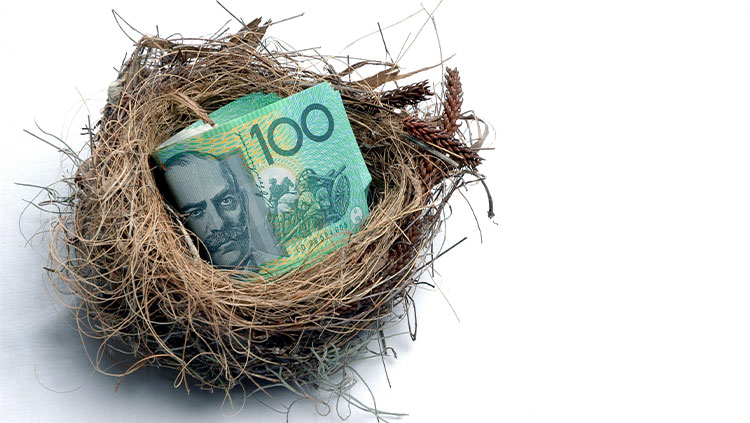Loading component...
First super changes begin from 1 July 2025
Content Summary
- Superannuation
Loading component...

Jan McCallum
This article was current at the time of publication.
Major changes to superannuation will take effect on 1 July 2025. Additionally, the May federal election has given accountants and their clients more certainty about proposed changes for July 2026.
It now seems likely that the government’s plan for a higher tax rate on unrealised capital gains for super balances of over A$3 million will go ahead and that the government will move to legislate the necessary changes for payday super to begin on 1 July 2026.
Changes already legislated to come into effect on 1 July 2025 include an increase in the super guarantee charge (SGC) and payment of super for taxpayers on government funded paid parental leave.
Super guarantee on the rise
From 1 July 2025, super guarantee (SG) contributions paid by employers will increase from 11.5 per cent to 12 per cent.
The maximum super contribution base on which this will be calculated will be A$62,500 on an employee’s earnings base per quarter, for a maximum SG payment of A$7500 per quarter. The employer does not usually have to pay the charge on earnings above this limit.
On these calculations, the 12 per cent applies to ordinary time earnings of up to A$250,000 a year, when the Division 293 tax applies and taxpayers may find themselves liable to pay an additional 15 per cent tax on their super contributions over the threshold.
CPA Australia’s Superannuation Lead, Richard Webb, says it is an area where high earners will want to get specialist advice from their tax or financial advisor to avoid inadvertently breaching the threshold.
Super on paid parental leave from July
From 1 July 2025, the government will pay superannuation on government funded Parental Leave Pay, a measure designed to help maintain the super balances of taxpayers who take time from work to care for children.
Eligible parents with babies born or adopted on or after 1 July 2025 will receive an additional contribution, based on the SG (12 per cent of their Parental Leave Pay) to their nominated superannuation fund.
This will be a lump sum paid following the end of each financial year in which government funded Parental Leave Pay was paid, meaning the Australian Taxation Office will make the first payments from 1 July 2026.
Eligible parents will continue to apply for Parental Leave Pay through Services Australia, which will assess eligibility for the payment and superannuation contribution.
Increase in the super transfer balance cap
From 1 July 2025, the general transfer balance cap for people entering the retirement phase of their super will increase to A$2 million from A$1.9 million.
The cap is the limit on the amount of superannuation that can be transferred into the retirement phase, where fund earnings are tax free.
The increase reflects movements in inflation and is designed to move so that retirees do not have their purchasing power eroded over time.
Taxation of unrealised capital gains in superannuation
The government plans to increase the earnings tax rate of members of super funds in the accumulation phase with balances above A$3 million from 15 per cent to 30 per cent (Division 296) and is expected to proceed with the legislation now the election is decided.
When proposed, it was due to take effect on 1 July 2025, but this date now seems unlikely.
Balances up to A$3 million will still be taxed at the concessional rate of 15 per cent.
CPA Australia has concerns that the tax will be calculated on unrealised capital gains and will affect self-managed super funds (SMSFs) disproportionately.
“We are not alone in raising issues with this,” says Webb, who adds that CPA Australia will continue to raise its concerns with the government.
He says taxing unrealised capital gains increases the liquidity risk to SMSFs that might be holding a family farm or business premises, which could find themselves with a significant tax bill.
Webb notes there is no indexing in place, so more fund members will be caught by the higher tax as super balances increase.
Members will also have no way to recoup taxation of gains if they eventually sell the asset and its value has fallen.
Payday superannuation from July 2026
The government has set 1 July 2026 for the introduction of payday super, where employers will have to pay super at the same time as salaries and wages.
Webb says CPA Australia has concerns about the feasibility of this date given the work required of employers, technology firms providing payroll and superannuation software, and super funds.
He points out that the amount of traffic through the superannuation transition network is forecast to increase between two- to five-fold due to more frequent payments and messaging.
“Considerable work needs to be done by employers and intermediaries, and we have made a submission proposing an extension to 1 July 2027,” he says.
“We definitely think it is important that these changes are made but it has to be in a way that people can rely on it and that employers are not unfairly penalised for circumstances beyond their control.”
The government announced in September 2024 that businesses would become liable for the updated SGC if super contributions were not received by their employees’ superannuation fund within seven days of payday.
Loading component...
Discover more
Superannuation Guarantee increase poses new risks
Employers and those on the payroll need to be across what the hike in SG payments may mean
- Superannuation
article·Published onSuper statements ready for a shake up
Published in Investment Magazine (February 2021)
- Superannuation

Superannuation
Resources and the latest developments for those working in superannuation
- Superannuation
Time to address non-retirement super elements
Published in SMS Magazine (August 2020)
- Superannuation
How SMSFs will benefit from advice changes
Published 19 July 2023 in SMS Magazine
- Superannuation
Screws tighten on trustees to justify rising insurance premiums
Published in Investment Magazine (December 2020)
- Superannuation
